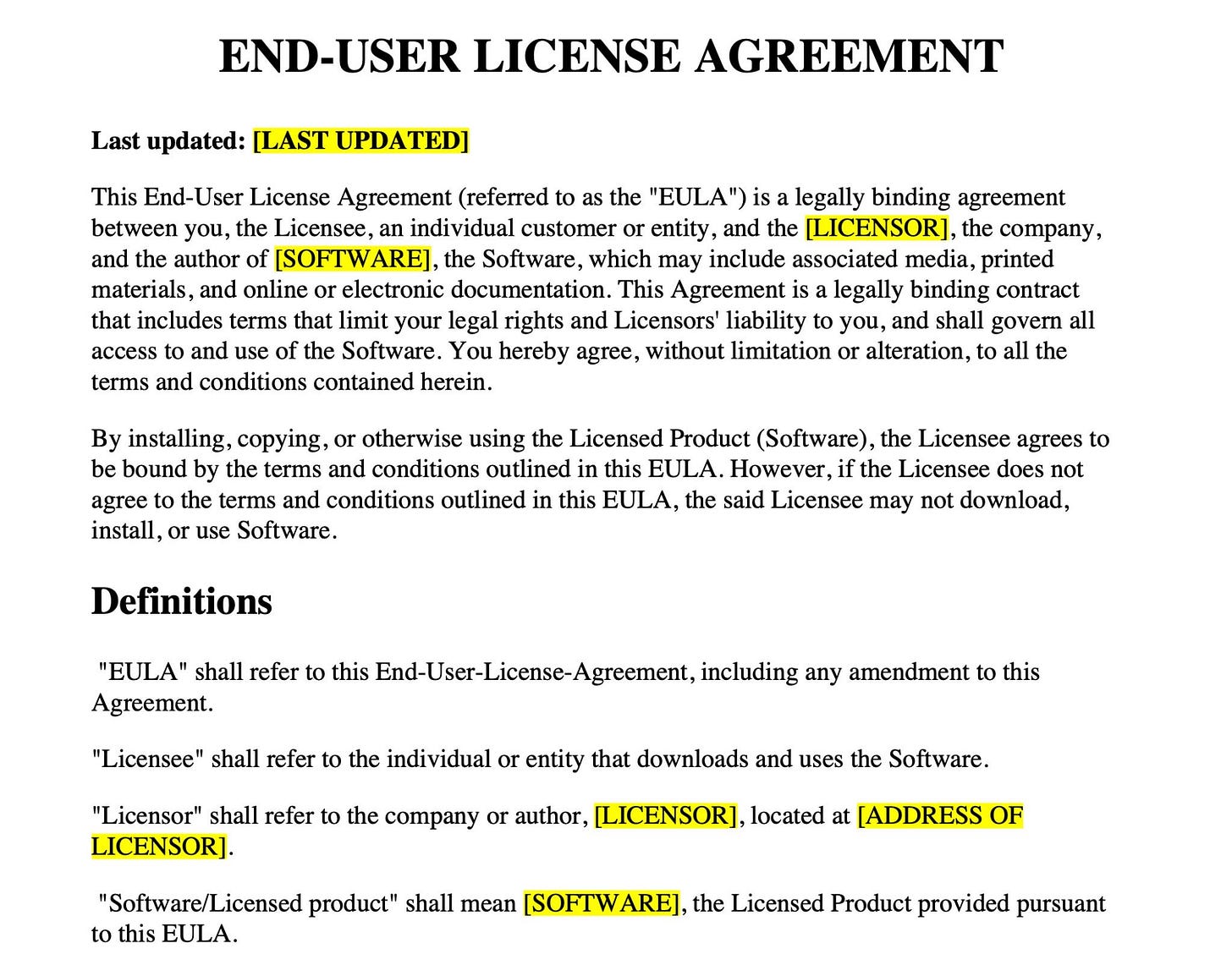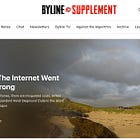How Privacy Should Have Been Done: A Guest Op-Ed by David M
In the ongoing Bette series on how to rebuild the world after we defeat the authoritarian surge, Bette member David M thinks outside of the box on how we take our privacy back
***Please take out a membership to support the light of truth.***
Author’s note: As I continue to look further over the waves — toward a future beyond the daily grind of criminal traitors setting the fear-control narratives, which only benefit their corrupt regimes — it becomes increasingly clear, we have to write a prescription for a world in the future that people would want to live in or why would they even fight. In this guest op-ed, Bette member David M creates a template that puts privacy back where it belongs — in the hands of the individual.—hsc
How Privacy Should Have Been Done
by David M
I’ve been thinking about this concept for how to return our identities back into our own hands.
Here are some initial bullet-points explaining this modest proposal along with some necessary terminology, some of which will be repeated throughout:
1. All digital personal information (DPI) will be stored exclusively by registered information carriers (RICs.)
2. RICs are beholden exclusively to their subscribers whose DPI they manage.
3. RICs would have enormous power in the information marketplace, establishing a better balance between service providers (e.g. Google, Facebook, etc.) and individuals.
4. Subscribers will never have to read another obtuse privacy policy ever again.
5. Service providers would find it difficult to employ excessively intricate and self-serving privacy agreements.
6. The need to maintain a good reputation would incentivize RICs to take digital security very seriously.
7. Doxxing a user based on their own data would be exceptionally difficult and easily prosecutable.
Proposal Summary:
The current handling of digital personal information disempowers individuals, while providing service providers with enormous profits. Individuals can expect next to nothing in the way of protections or safeguards. They cannot even be sure they will be notified if their data is stolen by malicious third parties or used in questionable ways. Going forward, a better balance will be crucial.
Service providers such as Google and Facebook have little incentive to provide clarity in how they handle their users’ private data and even less to provide their users with recourse in the event of a dispute. Even worse: if a single service provider were to offer users a more agreeable balance or agree to delete superfluous data there is little reason to expect any other service provider would follow suit — so the user’s overall exposure would be negligibly reduced. This is not a sensible arrangement.
This proposal fashions a marketplace for companies focused solely on the management of individual digital personal information (DPI). The marketplace would be specifically tailored to incentivize these companies to find the balance that best addresses their subscribers’ conflicting needs for frictionless interaction, digital security and privacy.
Implementing this marketplace would not require the creation of any onerous legal regime, nor the expense of large scale national infrastructure. It would simply require the passing of a couple carefully written new laws.
Precepts — The Crucial Elements
1. ALL digital personal information (DPI) will be stored exclusively by registered carriers (RICs.)
2. All access to an individual’s DPI would be exclusively through the subscriber’s registered carrier.
3. RICs may not receive payment in any fashion from anyone except subscribers whose DPI they manage.
4. The penalty for an RIC receiving money in an unauthorized manner is immediate and automatic suspension of incorporation. No act of government or agent of government is required to invoke this suspension.
5. Subscribers are free to switch their registered provider at any time without fee or constraint. The source RIC must immediately transfer the data to the target RIC and delete all stored data relevant in any way to that subscriber.
6. All agreements between RICs and non-subscribers/companies must be public.
7. Specific government agencies could be granted access to DPI by court order for criminal investigatory purposes.
Implications
1. Most individuals who wish to open a bank account, or seek a car loan, etc., will need to maintain a subscription to an RIC. Few banks would make a loan to an individual whose reputation cannot be established.
2. The vast majority of individuals will maintain these subscriptions, and their DPI will only be available through their RIC. This gives the RICs enormous power in the information marketplace, establishing a better balance between service providers and individuals.
3. Beholden solely to their subscribers, RICs will inevitably find themselves in the role of acting as collective bargaining agents on behalf of their subscribers.
4. Service providers would find it difficult to employ excessively intricate and self-serving privacy agreements because the registered information carriers would fear a loss of subscribers if they were to agree to such terms.
Advantages
1. Because RICs are exclusively funded by — and therefore beholden to — their subscribers, they are incentivized to find an optimal balance between subscriber privacy and the need for convenient access to services.
2. Subscribers will never have to read a privacy policy ever again, because all of that complexity is handed by the RICs who operate in the role of a collective bargaining agent on behalf of their clients.
3. Individuals would simply choose which RIC they want to subscribe to and then live within the ecosystem provided. Their selection of RIC would then likely be based on a combination of reputation and research, in the same manner as one currently selects a bank or a car.
4. The need to maintain a good reputation would incentivize RICs to take digital security very seriously.
5. Medical records could be stored exclusively by RICs, ensuring uniformity and portability of medical data. Governments providing universal healthcare would be freed of the expense of maintaining and securing patient databases, while patients would benefit from the rapid adoption of new technologies common in private enterprise.
6. Credit reports, being essentially DPI, would also be stored exclusively by RICs, providing individuals with more control over how their credit reports are used, and by whom.
7. DPI would become inheritable, allowing children to own and curate the digital legacy of their parents.
Additional Benefits
While social media is not explicitly prohibited in this new privacy legal structure, the current model would be unworkable since the storage of DPI by a non-RIC would be illegal. However, one can easily imagine alternative models for social media that would work just fine, while providing users with much finer-grained control of how their data is shared and the ability to unpublish their data — down to the level of individual posts — at will.
As noted, doxxing a user based on their own data would be exceptionally difficult and very easy to prosecute.
‘I Want To Pay For My Privacy’
As you know, if it’s free, we are the product. I, for one, want to pay for my privacy, because I want it to be MY privacy.
****
****
Related:
****
Bette Dangerous is a reader-funded magazine. Thank you to all monthly, annual, and founding members.
I expose the corruption of billionaire fascists, while relying on memberships for support.
Thank you in advance for considering the following:
Share my reporting with allies
Buying my ebooks
A private link to an annual membership discount for older adults, those on fixed incomes or drawing disability, as well as activists and members of the media is available upon request at bettedangerous/gmail. 🥹
More info about Bette Dangerous - This magazine is written by Heidi Siegmund Cuda, an Emmy-award winning investigative reporter/producer, author, and veteran music and nightlife columnist. She is the cohost of RADICALIZED Truth Survives, an investigative show about disinformation and is part of the Byline Media team. Thank you for your support of independent investigative journalism.
🤍
Begin each day with a grateful heart.
🤍





